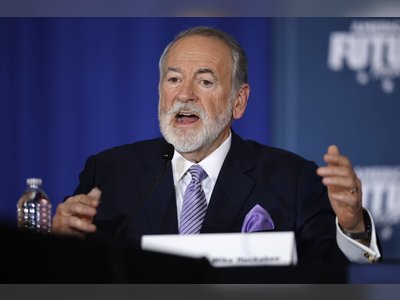
Global success in fighting flu shows way out of Covid-19 lockdowns
It was obvious, but I had not thought about it until I opened my August edition of Scientific American to the headline: “What Happened to the Flu?”. In short, the social distancing, hygiene and masking rules enforced worldwide to bring the pandemic under control have stopped seasonal influenza epidemics
in their tracks.
The US Centres for Disease Control and Prevention says that since April last year, influenza cases have flatlined close to zero. Influenza deaths totalled about 700 during the entire 2020-21 flu season – which compares with 22,000 deaths during the 2020 flu season from January to March, and 34,000 deaths in the 2019 season.
Hong Kong’s Centre for Health Protection tells a similar story. As the Post reported last March, there were 356 flu deaths in 2019 and 113 in 2020. But for the influenza season that ended this past March, only one death was recorded.
The World Health Organization reports a similar flatlining. It estimates an annual average of 3 million to 5 million severe flu cases across the world every year and between 290,000 and 650,000 deaths. Examining survey data from the 14 months between November 2019 and the end of 2020, however, it found about 615,000 flu cases – 609,000 of them before April 2020 and just 5,730 cases in the nine months from April to December.
“Overall, the timing of annual global influenza circulation in 2020 differed from that of any season observed previously,” the WHO said. It differed in that the circulation disappeared.
Whatever the protests against mask-wearing in certain parts of the world, the evidence proves that masks are highly effective in stifling normal airborne pathogens. Sadly, they are not fail-safe enough to provide complete protection against a new, highly contagious virus like Covid-19.
In the past 18 months, masks, social distancing and hand hygiene have bought us time until effective Covid-19 vaccines became available, and heaven knows how many lives they have saved. Even so, the toll of 206 million Covid-19 cases worldwide and 4.3 million deaths is still a heavy one.
Like helmets for motorcyclists, seat belts in cars and flotation jackets for canoeists, they might not prevent every fatality but are a common sense thing to wear. They are also a small inconvenience compared with the protection they deliver.
If our mission must be to put the pandemic behind us as quickly and effectively as possible, both at home and worldwide, the selfishness and procrastination of anti-maskers and anti-vaxxers must be brushed aside. Our political leaders and regulators must stand firm in insisting that in the eternal struggle between personal freedom and communal obligation, there are times when care for the community comes first – and now is one of those times.
As we move from a period of ensuring survival against the virus to one where we must learn to live with it, different rules must apply. Policy can no longer be determined primarily by medical experts and must revert to where it normally belongs – with political leaders who, alongside the medical imperative to minimise the health risks, must give equal weight to the imperatives to protect the economy, our communities and our mental health.
I feel sympathy for the “no jab, no job” complaints over impingement on personal freedoms and discrimination. Employment lawyers might be technically correct to warn that companies are walking into a “moral and legal minefield” when they insist employees must be vaccinated before they are allowed to return to the office.
But it is not just in hospitals, schools or care homes where it is reasonable to insist vaccination is mandatory. Can the viability of a business or the physical safety of clients, customers, employees and their families be put at risk by an employee who insists on the freedom not to be vaccinated? If I have to choose between flying United Airlines – which insists on all staff being vaccinated – and American Airlines, which does not, I know which airline I will choose.
The other political imperative is to gather as many lessons as possible from the pandemic before we forget them and to learn from them to ensure that the next pandemic is managed better. What are those lessons?
The first and foremost imperative is for better international cooperation, which must start with fail-safe early warnings. Whatever the reasons for Beijing failing to alert the world to the grave nature of the pandemic until several weeks after it was alerted to first signs of a possible pandemic, the grim reality is that delay cost us millions of lives and many trillions of dollars of economic damage. If that means major restructuring at the World Health Organization and more intrusive powers, so be it.
Because no one is safe from a pandemic until everyone is safe, we need more effective ways of ensuring that protection – whether through access to protective equipment or access to vaccines – is applied universally. National remedies simply cannot work.
The United States, United Kingdom, Germany or Israel might boast about the speed with which they have vaccinated a large part of their populations, but while so many in Africa, South America and developing Asia remain unvaccinated, these are empty boasts.
When so many lives have been lost to the pandemic, surely it is unacceptable not to dedicate considerable billions of dollars to future early-warning preparedness, funding strategic reserves of protective equipment and funds to fast-track future development of vaccines?
Instead of obsessing about case numbers, our leaders should focus on the transition from surviving the pandemic to living with it. Once hospitals are no longer under pressure and people are no longer dying, policies should change.
For this, our approach to influenza provides a timely template. There is no need for draconian lockdowns or harmful quarantines. Once we are vaccinated and have masks on hand, the time has come to let us get on with our lives.











